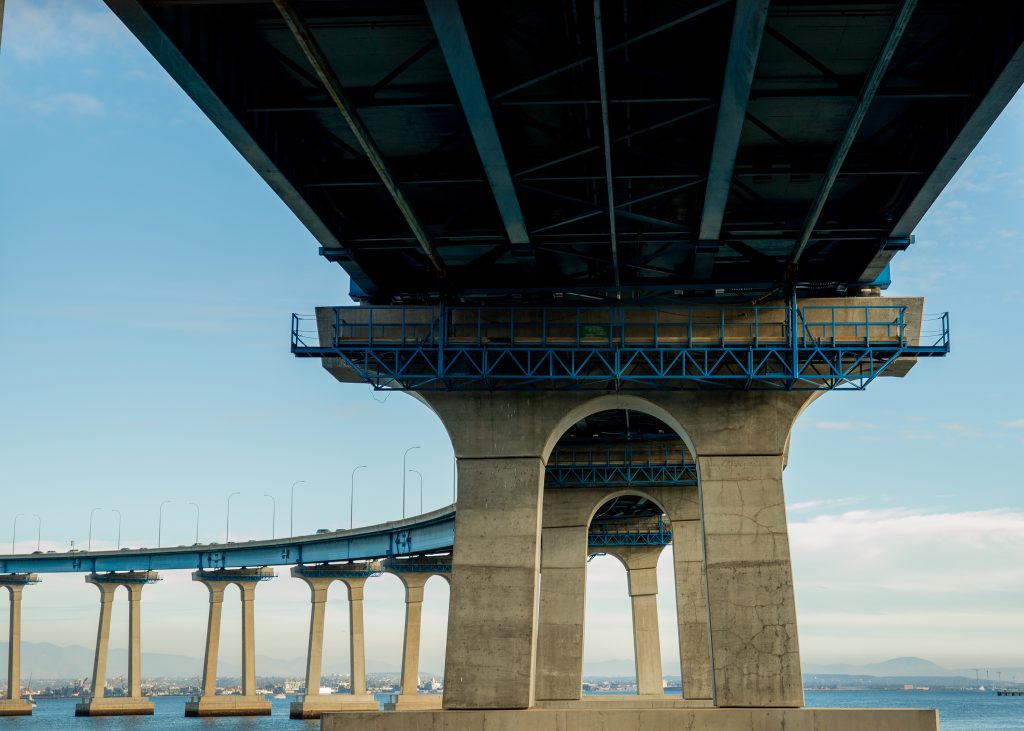
Since its completion in 1969, more than 400 people have died after jumping from the San Diego-Coronado Bridge.
A safety barrier to deter people from jumping will be installed on the bridge in a $140 million project overseen by the California Department of Transportation (Caltrans).
There is not yet a timeline for the project’s completion, a spokesperson for Caltrans said, but it will implement a design-build approach, allowing for concurrent design and construction in effort to save time.
The Coronado bridge has been given the chilling moniker of “suicide bridge,” and it’s often cited as the nation’s second deadliest, after the Golden Gate Bridge in San Francisco. However, a suicide deterrent was completed on the Golden Gate Bridge in 2024.
A Harvard University study found that 9 out of 10 survivors of suicide attempts do not ultimately die by suicide. Making suicide from atop the 200-foot Coronado Bridge so easy, advocates argue, robs those in struggle from the chance to reconsider.
Wayne Strickland, a 32-year veteran of the Coronado Fire Department and the founder of the grassroots movement, Coronado San Diego Bridge Collaborative For Suicide Prevention, is one of many in the community pushing for the deterrent.
The contract award is one update in many among the years as the project trudges forward, but Coronado Mayor John Duncan said it is a significant one.
“(The project) is moving forward, and in a way that it has never moved forward before,” Duncan said at the April 1 meeting of the Coronado City Council.”
In 2019, Caltrans installed four-inch spikes along the railing of the bridge, but they did not prevent people from jumping. There are security cameras at the Bridge Glorietta Toll Plaza on the Coronado side of the bridge, but they are insufficient for monitoring bridge activity, Caltrans says.
The bridge marks the highest concentration of fatalities in Caltrans’ District 11, which includes San Diego and Imperial counties. Because fatalities caused by suicide do not qualify under Highway Safety Improvement Program (HSIP) criteria, the project does not qualify for HSIP funding.
Duncan said that he has offered to help Caltrans advocate for funding if necessary. In the past, leaders have framed the matter as one of congestion, since people who jump often leave vehicles behind, causing delays.
“The unfortunate fact,” former Coronado Councilmember Bill Sandke said in 2022, “is that the government doesn’t have piles of money set aside to save lives on a bridge, but it does have money to help with the operation of its transportation systems.”
The project was awarded to Myers and Traylor. Duncan said he hopes to coordinate with Caltrans to bring an informational presentation before City Council so the public and council members can ask questions.
If you or someone you know needs help, call the 24-hour Suicide & Crisis Lifeline at 988.





Suicide should be legalized.
Suicide is an awful tragedy, but will the net really deter suicide or simply cause suicidal people to go elsewhere? Why not spend the $140,000,000 (which I am guessing will end up over budget like most CA government projects at $200,000,000+) on mental health services?
If they’re not asking for help, then all the money in the world won’t make a difference.
The article states most people that they don’t try again so perhaps attempting to jump will get them the help they need.
Will they go somewhere else if the nets stop them? Perhaps, but it’s better to eliminate an option.
Certainly, it’s far to easy to get a gun in this country but that’s a topic for another day
Thank goodness for this news, my nephew was unfortunately the most recent statistic (February) and horrible loss for our family. RIP J. Wall
We miss you so much EVERYDAY! 😇
Love, Auntie Cheryl (Shay)💔
A long overdue solution. Glad to hear it’s found its way through the bureaucracy. Saving lives finally gets the priority it deserves over the daily traffic concerns.
Thank you for your unwavering commitment to this cause ❤️
I’m so happy that this vertical cantilevered net (fence) will be done and prevent suicides and suicide attempts.
Thanks for the great article.👏